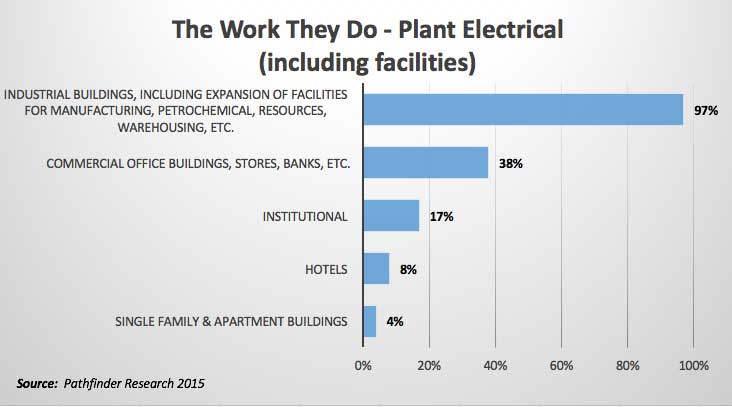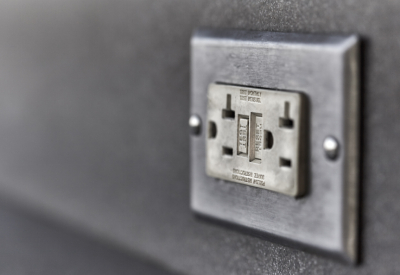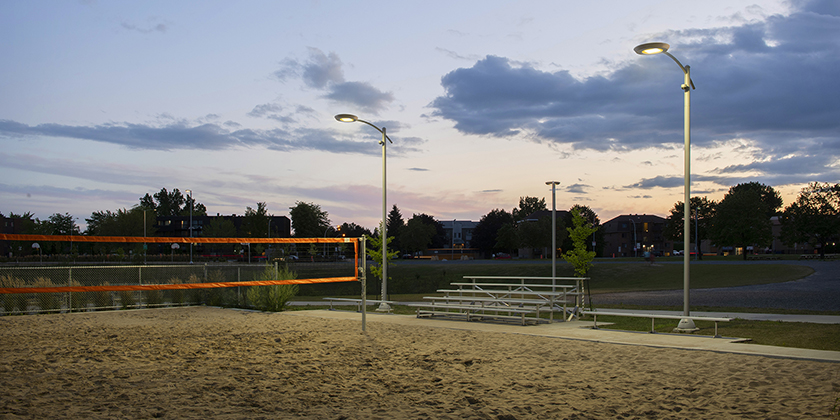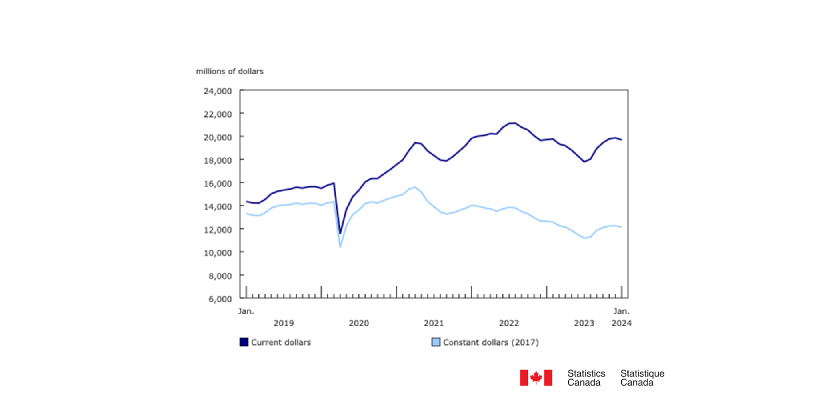What the Hurricane Season Taught Me About Electricity

Nov 24, 2017
By Keith Sones
I’m going to make a very broad assumption.If you are reading this article, then you either work in a world that is heavily involved with electricity and electronics, or you use electricity on a regular basis. Okay, apart from those who are living completely off the grid (in which case you received a copy of these pages via carrier pigeon or pony express), I think this covers most people.Now that we have that taken care of, I’d like to significantly challenge your early education and tell you that one of the most basic things you were all taught is wrong.Actually, perhaps saying that it’s wrong is misleading.More accurately, something that the vast majority of us were taught as children is now incomplete.
As a kid growing up in a small town, then as a high school, university and tech school student, and as an adult roaming the broader world, I had always been taught (and I’ll bet dollars to doughnuts that you were too) that there are three things you absolutely need to survive.As I write this, I can hear the echo of my Grade 6 elementary school teacher Mr. Powell, who told our mesmerized class, “You can live without air for four minutes, without water for four days, and without food for 40 days.” At which point, to prove him wrong, I held my breath and stared at my watch.I lasted less than 30 seconds.
So there you have it.Air, water and food, in that order.That’s it, right?Three things that were drilled into our young minds as being the foundations of life itself, without which we all perish in short order.A bit later in life, this was reinforced in a goals setting course I attended when the instructor mused, “If you want to know the definition of a high priority, put a plastic bag over your head and try to breathe.Your corporate goals will instantly vanish and you will have absolute clarity about what is immediately important.” And please folks, don’t try this at home.You’ll have to take my word on this one.
These things are obviously critical to our survival as individuals, and the same applies to orcas, ocelots, Orange Tanagers, and the huge majority of living creatures (no offense meant to sulphur breathing sea worms). No question — take one of them away and we expire faster than the playoff hopes of my favourite hockey team (I live in Vancouver, so you can figure that one out).There is, however, a fourth force that has emerged over the decades which is vying for a spot on the podium of life giving blessings, and it’s something that we have harnessed from nature.This fourth force applies uniquely to humans, and grows in strength with each passing day.It’s electricity.
Now, before you get all “Come on, humans have been living without electricity for millennia” on me, hear me out.You are correct that humans have been without the benefit of electrons being sent to their homes and businesses for the majority of their existence.And of course, when it wasn’t available our society designed itself accordingly.Flour was milled with oxen providing the energy to grind the grain, and homes were lit with oil lamps, or by fire, or not at all.Life was rural and the average person knew how to snare a rabbit, build a shelter and use animals to plough a field.The concept of the 100 mile diet was not articulated as such — it was more “If you can’t catch it, grow it or power it yourself, you can’t have it.”
And then, when the dust settled on the battle for supremacy between Thomas Edison and George Westinghouse, we started to evolve our society using AC electric power as the basis.And in the blink of an eye in geologic time, homo sapiens traded our basic survival skills for the conveniences of modern life.We used our engineering prowess to light up the world, build factories, create a nutrition supply chain that made the origins of our food invisible to most of us, and treat the water that now flows freely from our kitchen faucet.So, however much you may wish to harken back to simpler times, I challenge you to go off the grid and survive.Think you can capably hunt and dress a deer, treat an infected wound or live through a series of -30 degree days in the complete absence of electric power? Some could, but generally the facts speak otherwise. Most of us would die within a year as our entire modern society crumbles.
I tend to think of the flow of electricity in technical or construction terms.How much does it cost to set a pole, what equipment is required string a new circuit, what size transformer is needed to add capacity to a neighbourhood or which skill sets are necessary to design a new substation?The actual value of this life sustaining commodity oftentimes gets lost in the shuffle.However, I was recently reminded of how important it is as a result of another natural source of tremendous power — hurricanes.
When Harvey, Irma and Maria launched a direct hit on the U.S. Gulf coast and the Caribbean earlier this year, the Valard Group and our parent company Quanta Services, along with others, responded by sending crews of linemen and trucks to support the restoration effort.As usual, the emphasis was on logistics, understandable since mobilizing thousands of people and vehicles is a daunting task, particularly when there is an ocean in the way.However, it was my wife who refocused my perspective and made me remember that we are doing more than producing widgets.
During her daily activities, Rosanne interfaces with and observes a number of different people.One day not long ago we were standing in our kitchen talking about the issues of the day, many of which I’ve since forgotten as my memory is like a firecracker these days — intense for a very brief time then gone.Given the events of late summer in the Caribbean, she raised the topic of the hurricanes and the incredible damage that had been incurred, including to the British Virgin Islands and Puerto Rico.Yes, I agreed, it was indeed a terrible event, but in all honesty I looked at things through the lens of logistical objectivity.It would likely take quite some time to restore power and it must be a real pain to be without the modern conveniences, but in time things would get back to normal.With passion in her voice, Rosanne insisted it was more than just inconvenient, it was in fact something far greater.She related some of the very emotional stories she had been told about the loss of livelihood, the death of family members and ultimately for some, the loss of hope.It’s not, she reminded me, a mere loss of electric power.This is life itself we are talking about.
Many years ago the psychologist Abraham Maslow developed a theory of motivation (see inset) that generally still sticks today.The essence is that we spend our time and energy on attaining the things at each level on the pyramid, but if we don’t have the next meal figured out it’s very difficult to think about esteem and realizing our full potential.And then eureka moment happened for me (for the record I’ve always been a slower learner than Rosanne).The loss of electricity has not just created an inconvenience for people, it had placed entire populations on notice that the most basic needs of life were no longer available.Whatever they were doing before the hurricanes hit, many had now been tossed right to the bottom of the pyramid and were forced to think about how to get clean water rather than running their business or taking the kids to soccer practice.For you, me and everyone else on our planet, being in that situation would be just plain scary.
As a rule, people are very resilient and adaptable.We survive and thrive in spite of the circumstances thrown at us.Our ability to bounce back after wars, earthquakes and financial crises are testament to the fact that we will always find a way.But that aside, make no mistake about how important electricity is to our society.We have chosen a path that works very well and has allowed us to do really exciting things like send people to the moon, as well as the more mundane such as watch Monday Night Football.But there is no turning back, and now we find ourselves unable to live without that power.
The lesson here?When we lose access to electricity, look at it in the same light as the loss of food or water. There is currently plenty of debate about the best power sources to use, the right routing for new transmission lines, how much is too much on our electric bills, and what happens to the grid when we all start driving electric cars.These discussions are healthy and necessary, as they help us create balance and plan appropriately for our future.But never, ever, ever think that we can live without it.
Keith Sones is Vice President, National Business Development, TheValard Group of Companies.










![Guide to the Canadian Electrical Code, Part 1[i], 26th Edition – A Road Map: Section 10 – Grounding and Bonding](https://electricalindustry.ca/wp-content/uploads/2022/11/Guide-CE-Code-2.png)





